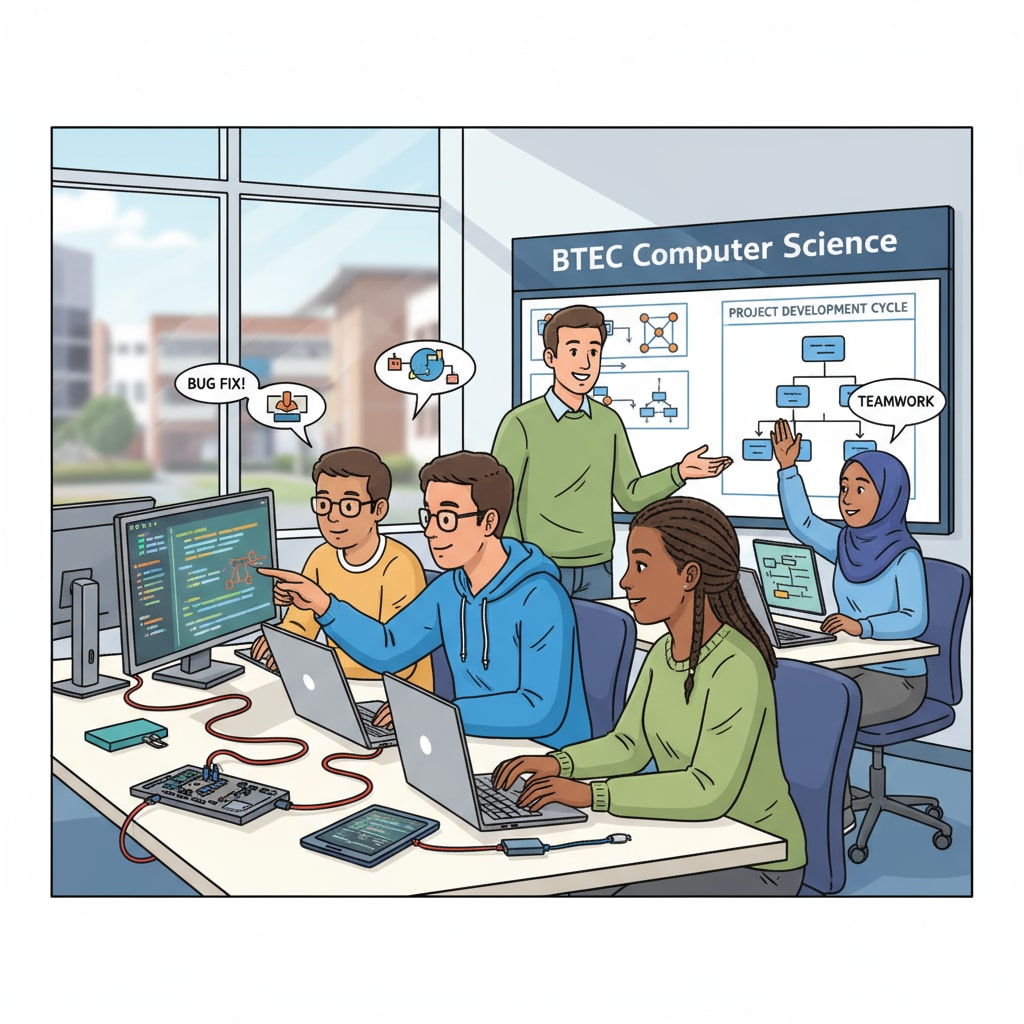When it comes to pursuing a career in computer science, students often face a crucial decision: choosing between a BTEC Level 3 Certificate in Computer Science and A-levels. This decision can significantly impact their university applications and future apprenticeship opportunities. In this article, we will compare the two pathways to help students make an informed choice.
The BTEC Advantage in Computer Science
The BTEC Level 3 Certificate in Computer Science offers a more practical and vocational approach to learning. It focuses on developing hands-on skills that are directly applicable in the workplace. For example, students may engage in projects related to software development, network administration, or database management. This practical experience can be a great advantage when applying for apprenticeships. BTEC official website

A-levels: The Academic Route
A-levels, on the other hand, are more academically rigorous. They cover a broader range of theoretical concepts in computer science, such as algorithms, programming languages, and computer architecture. Universities often highly regard A-levels as they demonstrate a student’s ability to study complex subjects in-depth. This can be beneficial for students aiming to pursue a traditional university degree in computer science. A-levels explained on UK government website

When it comes to university applications, both BTEC and A-levels have their merits. Some universities may prefer A-levels as they are more familiar with the academic structure. However, an increasing number of institutions are recognizing the value of BTEC qualifications, especially for courses with a strong vocational element. For example, courses in cyber security or game development may be more open to students with BTEC backgrounds.
In terms of apprenticeship opportunities, the practical skills gained through BTEC can give students an edge. Employers often look for candidates who can hit the ground running and contribute to projects immediately. However, A-level students can also be competitive if they have complemented their academic studies with relevant extracurricular activities or personal projects.
Readability guidance: As we’ve seen, the choice between BTEC and A-levels in computer science depends on individual career goals. For those interested in a more hands-on, vocational path, BTEC may be the better option. On the contrary, students aiming for a traditional academic route in computer science may find A-levels more suitable. Therefore, it’s crucial for students to carefully consider their long-term plans and make a choice that aligns with their aspirations.


